What we do
Finance for Jobs (F4J) achieves its objectives using two main financial instruments
1) Investment Co-financing Facility (ICF)
The Investment Co-Financing Facility (ICF) is a risk-sharing grant to support commercially sound, job-creating, private sector investments that otherwise may not be considered viable due to market and institutional failures such restrictions on movement, lack of monetary policies, lack of borders control, lack of integrated supply chain, among many others related to Conflict, Violent (FCV) risk considerations. By providing additional funding, the ICF aims to incentivize private investors to mobilize capital, thus creating sustainable employment opportunities, particularly for women, youth, the unemployed, and other vulnerable groups.
The ICF offers two types of grants:
Capital Investment Grants: These grants contribute to the capital investment cost of assets like equipment or machinery and could reach up to 30% of the capital investment cost and up to two million dollars.
Technical Assistance Grants: These grants support operational deficits and/or business development through activities such as product development, quality standards, market expansion, and recruiting specialized expertise and consultancies.
2) Development Impact Bond (DIB) for Skills Development for Employment
Driven by the market, the DIB focuses on enhancing the skills of the Palestinian workforce to make them attractive to employers. The DIB targets beneficiaries aged 18–29 years, of whom at least 30 percent are women. Based on private sector demand, the DIB financed specific outputs and outcomes, including completion of beneficiaries’ training, placement into apprenticeships/internships/work-based training schemes, and employment. Job types: Nurses, Doctors, Teachers, Carpenters, Business and Marketing, Technicians, Health and Safety, ICT.






